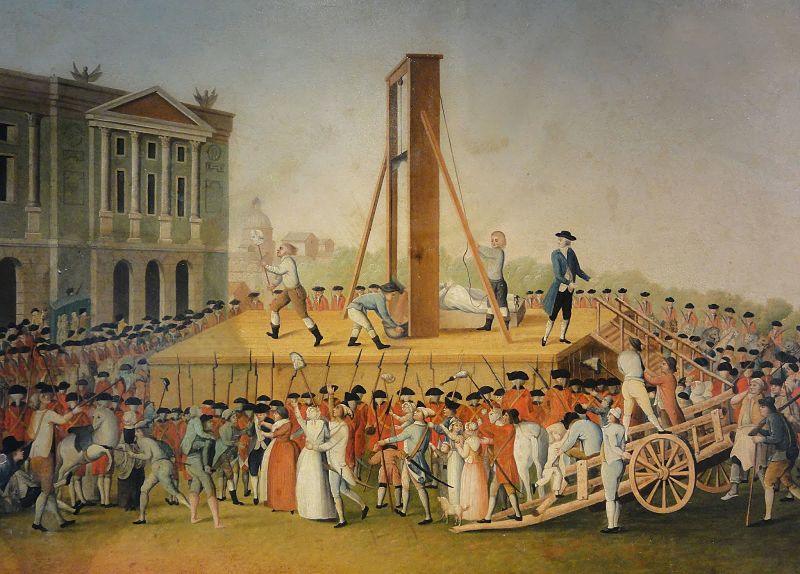
The Legacy of the French Revolution on Global Politics
The French Revolution, erupting in 1789 and reverberating for over a decade, stands as a pivotal moment in modern history, leaving an indelible mark on global politics. Its impact transcended French borders, sending shockwaves across the world and fundamentally shaping the course of modern politics, society, and culture. This essay will delve into the multifaceted legacy of the French Revolution and its enduring influence on the global political landscape. We will explore its contributions to the development of democracy, nationalism, capitalism, and international relations, demonstrating its continued relevance in contemporary global affairs.
I. The Birth of Modern Democracy: A Foundation for Popular Sovereignty
The French Revolution represents a watershed moment in the evolution of modern democracy. Its emphasis on liberty, equality, and fraternity ignited a global flame, inspiring generations of political thinkers, activists, and revolutionaries. The concept of popular sovereignty – the principle that political authority ultimately resides in the people – became a cornerstone of democratic thought, directly challenging the divine right of kings and the entrenched power of aristocratic elites.
The Revolution’s Declaration of the Rights of Man and of the Citizen (1789) stands as a seminal document, enshrining these principles and serving as a blueprint for subsequent declarations and constitutions worldwide. This document, with its emphasis on natural rights, freedom of speech and religion, and the right to due process, resonated deeply with reformers and revolutionaries across the globe. Its influence can be seen in the United States’ Bill of Rights (1791), a document that, while independently conceived, shares a remarkable philosophical kinship with the French Declaration. The influence extended further, inspiring similar movements across Latin America, sparking independence struggles in nations grappling with colonial rule and oppressive regimes.
The legacy of the French Revolution in the sphere of democracy extends beyond the mere articulation of principles. It fundamentally altered the very structure of governance, promoting the ideas of representative government, separation of powers, and accountability to the citizenry. The revolutionary fervor that swept across France not only toppled the monarchy but also ushered in a period of experimentation with different forms of democratic governance, including the establishment of a republic and the implementation of various constitutions. Although these experiments were often short-lived and marked by periods of instability and violence, they established a precedent for the ongoing struggle to establish and maintain democratic systems. The emphasis on citizen participation, representation, and accountability provided a new global standard for governance, a departure from the arbitrary rule of monarchs and the dominance of hereditary elites. This paradigm shift laid the groundwork for the spread of democratic ideals and institutions across the world, though the path to achieving fully realized democracies has proven long and arduous, marked by setbacks and ongoing struggles for inclusive representation.
The Revolution’s contribution to democratic thought also includes the introduction of new political concepts and vocabulary. Terms such as “republic,” “citizen,” and “national assembly” entered the lexicon of political discourse, influencing the language and framing of democratic movements across the globe. The very idea of a government accountable to its people, rather than to a divine right or hereditary claim, became a potent rallying cry for reform movements and revolutionary uprisings across the globe. The ideals of the French Revolution, while often imperfectly realized, provided a crucial framework for the development of democratic theory and practice, inspiring ongoing struggles for greater political participation, individual liberty, and social justice. The struggles for civil rights and suffrage that followed, both within Europe and beyond, were profoundly shaped by the legacy of the French Revolution.
II. The Rise of Nationalism and Self-Determination: Forging National Identities
The French Revolution also played a pivotal role in the rise of modern nationalism and the concept of self-determination. The Revolution’s emphasis on national identity, patriotism, and the sovereignty of the nation (as opposed to the monarch), fostered a new sense of national consciousness throughout Europe and beyond. The idea that nations, rather than empires or monarchies, should be the primary unit of political organization and governance gained significant traction, thereby fueling independence movements and struggles for self-determination on a global scale.
The impact of the Revolution’s promotion of national identity is evident in the wave of nationalist movements that swept across Europe and the Americas throughout the 19th and 20th centuries. The unification of Italy and Germany, for instance, drew significant inspiration from the revolutionary ideals of national unity and self-governance. The concept of a nation-state, where the boundaries of the nation align with the boundaries of the state, gained prominence as a result of these movements. The French Revolution’s emphasis on national symbols, languages, and cultural heritage contributed to the construction of national identities, which, in turn, fueled aspirations for independence and autonomy. These aspirations extended far beyond Europe, shaping the nationalist movements in Latin America, Asia, and Africa as these regions sought to liberate themselves from colonial rule.
The French Revolution’s legacy in promoting self-determination extended beyond the mere articulation of the concept. It demonstrated, through its own radical actions, that challenging existing power structures, even those seemingly entrenched, was possible. This provided a powerful example for colonized peoples and those living under oppressive regimes. The Revolution’s success, though ultimately limited and followed by periods of internal conflict, inspired movements for national liberation and self-governance across the globe. The idea that a nation has the right to determine its own destiny, free from external interference, became a central principle of international law and international relations. However, the pursuit of self-determination has often been fraught with complexities and contradictions, leading to internal conflicts and struggles for national unity, as evidenced by numerous post-colonial conflicts and ethnic tensions.
The influence of the French Revolution on nationalism is a complex and multifaceted phenomenon. While it contributed to the rise of national identities and self-determination, it also, paradoxically, contributed to the rise of aggressive nationalism and imperialistic expansion. The Napoleonic Wars, following the Revolution, exemplify this complex interplay. Napoleon’s conquests, while motivated by French national interests, also spread revolutionary ideals across Europe, yet often did so through military force and conquest, undermining the very principle of self-determination. This inherent tension between the revolutionary ideals of self-determination and the realities of power politics continues to shape international relations to this day.
III. The End of Feudalism and the Rise of Capitalism: Economic Transformations
The French Revolution marked a crucial turning point in the transition from feudalism to modern capitalism. The abolition of feudal privileges and the establishment of a more egalitarian society created a new economic landscape that proved conducive to the growth of capitalism. The dismantling of the feudal system, with its rigid class structure and restrictions on economic mobility, opened up new opportunities for economic advancement.
The Revolution’s emphasis on individual liberty, property rights, and free markets contributed to the establishment of a global environment in which capitalism could flourish. The emphasis on private property rights, while not without its critics, provided a legal framework that encouraged investment and economic innovation. The removal of restrictions on trade and commerce, albeit unevenly and often inconsistently implemented, allowed for greater economic dynamism and the expansion of markets.
The legacy of the Revolution in this context can be seen in the subsequent rise of modern capitalism and the emergence of new economic powers. The United States, with its emphasis on individual initiative and entrepreneurial spirit, emerged as a powerful capitalist force partly influenced by the revolutionary ideas circulating across the Atlantic. The growth of international trade and finance also reflected the increasing interconnectedness of global economies, a trend that gained significant momentum in the wake of the Revolution.
However, the Revolution’s relationship with capitalism is not without its complexities and contradictions. The Revolution itself was fueled by social and economic grievances against the existing system, and the early years of the Republic saw attempts to implement socialist and egalitarian policies. The rise of capitalism in the aftermath of the Revolution did not lead to a fully egalitarian society. The concentration of wealth and power remained a significant problem, and the benefits of capitalist development were not evenly distributed. Indeed, the inequalities and social unrest inherent in the capitalist system contributed to subsequent social and political movements, including the socialist and communist movements that emerged in the 19th and 20th centuries.
IV. The Impact on International Relations and Global Governance: Redefining Sovereignty and Cooperation
The French Revolution profoundly impacted international relations and global governance. Its emphasis on national sovereignty, non-intervention in the affairs of other states, and the equality of nations shaped the way states interacted with one another. The Revolution’s emphasis on codifying international norms, although inconsistently applied, laid the groundwork for the development of modern international law.
The legacy of the Revolution in this regard is evident in the subsequent emergence of modern international law and the development of international governance institutions. The concept of national sovereignty, central to the revolutionary ideology, became a cornerstone of international relations, shaping the structure of the international system. However, the practice of sovereignty often clashed with the reality of power politics, leading to conflicts and interventions.
The creation of international organizations, such as the United Nations, though occurring centuries after the Revolution, reflects a continued effort to establish a system of international cooperation and governance based on the principle of the equality of states. While the UN’s effectiveness remains a subject of debate, its very existence demonstrates the lasting influence of the ideas of international cooperation and collective security, ideas that found early expression in the revolutionary period. The development of international organizations such as the International Monetary Fund (IMF) and the World Trade Organization (WTO) reflects further the impact of the Revolution on the interconnectedness of global economies and the creation of institutions designed to manage these increasingly complex relationships.
The revolutionary emphasis on diplomacy, although often undermined by the realities of power politics, laid the groundwork for the development of modern diplomatic practices. The establishment of formal diplomatic channels and the negotiation of treaties between states reflected a nascent system of international governance based on diplomacy and negotiation, rather than solely on military force. This emphasis on diplomacy, although often flawed and imperfect, has become a central component of international relations, continuing to shape the way states interact and resolve their disputes.
V. The Ongoing Relevance of the French Revolution’s Legacy: A Continuing Influence
The legacy of the French Revolution continues to shape global politics in the 21st century. Its core ideals – democracy, nationalism, self-determination, and the pursuit of liberty, equality, and fraternity – remain central to modern political discourse and continue to inspire social movements and political activism.
The ongoing struggles for democracy and human rights across the globe are profoundly influenced by the revolutionary ideals of liberty, equality, and fraternity. The Arab Spring uprisings, while ultimately yielding mixed results, demonstrated the enduring power of these ideals to inspire movements for political change. The ongoing debate surrounding Brexit highlights the enduring tension between national sovereignty and international cooperation. The rise of populism and nationalism in various parts of the world reflects both the enduring appeal of national identity and the potential for these ideals to be used to justify exclusionary and authoritarian policies.
The French Revolution’s legacy is not a monolithic entity. It encompasses both the inspiring ideals of liberty, equality, and fraternity and the darker aspects of violence, instability, and the rise of authoritarianism. It serves as a complex and multifaceted historical example, one that reminds us that the pursuit of these ideals is an ongoing process, fraught with challenges and setbacks.
The Revolution’s enduring legacy lies not only in its historical impact but also in its ongoing relevance to the contemporary challenges facing the world. Understanding the complexities of the French Revolution, its successes, and its failures, is crucial for navigating the present. Its continuing influence serves as a potent reminder of the importance of democratic values, national self-determination, and human rights. By studying its impact, we can strive to create a world that embodies, in a more just and equitable manner, the revolutionary ideals of liberty, equality, and fraternity.


